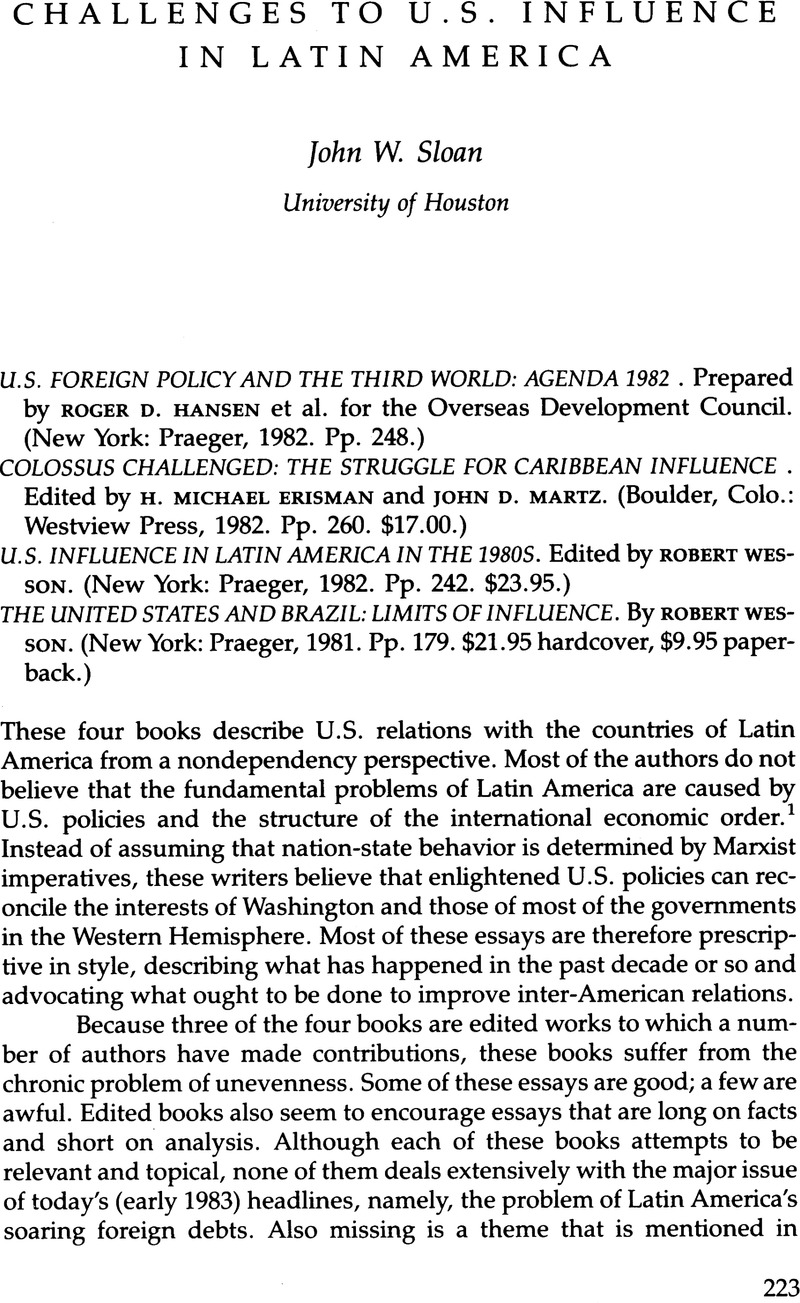No CrossRef data available.
Published online by Cambridge University Press: 24 October 2022

1. For a differing view, see Capitalism and the State in U.S.–Latin American Relations, edited by Richard R. Fagen (Stanford, Calif.: Stanford University Press, 1979).
2. John A. Bushnell, “Sustaining a Responsible Middle Course,” Orbis 26 (Summer 1982): 305–11.
3. Paul E. Sigmund, “Latin America: Change or Continuity?,” Foreign Affairs 60 (Winter 1981–82): 640.
4. For some contrasting views, see Wayne S. Smith, “Dateline Havana: Myopic Diplomacy/' Foreign Policy 48 (Fall 1982): 157–75; and Cuba in the World, edited by Cole Blasier and Carmelo Mesa-Lago (Pittsburgh, Pa.: University of Pittsburgh Press, 1979).
5. For an excellent summary of Venezuela's Caribbean policy, see John D. Martz, “Ideology and Oil: Venezuela in the Circum-Caribbean,” in Colossus Challenged.
6. Susan Kaufman Purcell, “Mexico–U.S. Relations: Big Initiatives Can Cause Big Problems,” Foreign Affairs 60 (Winter 1981–82): 389.